Healthy Fats = Healthy Hormones
May 9, 2019 By Sarah WhiteNo Comments
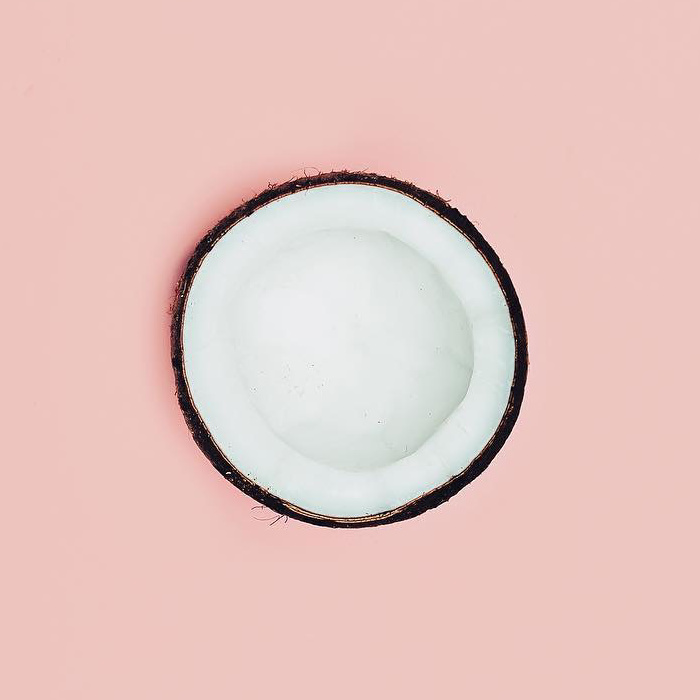
Why you need to eat more healthy fats for balanced hormones.
A large portion of my hormone + fertility focused appointments revolve around optimizing my patient’s diets. Great hormonal health begins with the foods you’re putting in your body, so we naturally spend a good portion of time during initial consults discussing my patient’s daily food choices. At least once a day I have a new patient with PCOS, infertility, etc. sit across from me in a visit and proudly exclaim that they’re already doing a great job with their diet since stay far away from fats. This post is for you, my fat phobic females! Not only are dietary fats important for maintaining an ideal body weight and improving brain health, they’re also critical for optimal hormonal health and fertility.
Most fat is healthy, satiating and a completely necessary part of our diets. Dietary fats from healthy whole foods are especially important when it comes to your hormonal health because they provide the essential fatty acids needed to make hormones. In order to have healthy hormones we also need to have healthy cell membranes, which are made from fats and require lots of dietary fats in order to function optimally.
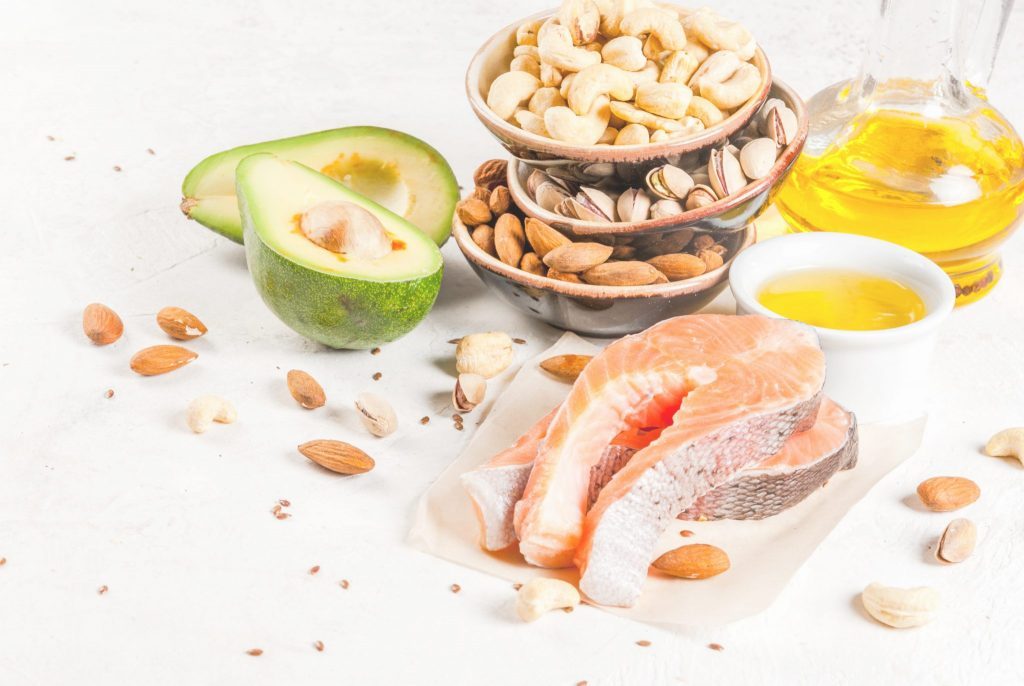
There’s a growing body of evidence suggesting that most female hormone problems actually start with an imbalance between pro-inflammatory and anti-inflammatory lipid compounds called prostaglandins. These prostaglandins are fat-based molecules that play a role both in activating & eliminating inflammation. While some inflammation is necessary & even beneficial, excess inflammation causes a variety of health problems, including hormone dysregulation. Consuming an optimal amount of healthy fats (specifically those containing omega-3s: see below) can help increase the production of anti-inflammatory compounds in the body and resolve the root cause of many hormonal imbalances.
Before we dive into my favourite high-fat foods for hormones I feel it’s important to first differentiate between good and bad fats:
What is a Good fat?
We have 3 main sources of dietary fats: trans, saturated and unsaturated. Unsaturated fats are a great choice to support optimal hormone health and may even reduce your risk of heart disease. Polyunsaturated and monounsaturated fats, specifically those containing omega-3 fatty acids, are particularly important for healthy hormones. Fatty fish is by far the best source of long-chain omega-3 fatty acids. And research suggests that increased dietary intake of omega-3s can balance hormones by reducing levels of the stress hormones cortisol and adrenaline. My favourite sources of unsaturated and healthy saturated fats include:
- Walnuts
- Almonds
- Sesame Seeds & Tahini paste
- Olives & Olive Oil
- Organic grass-fed meats
- Wild caught seafood
- Pumpkin seeds & pumpkin seed oil
- Avocado
- Wild salmon
- Coconut and coconut oil
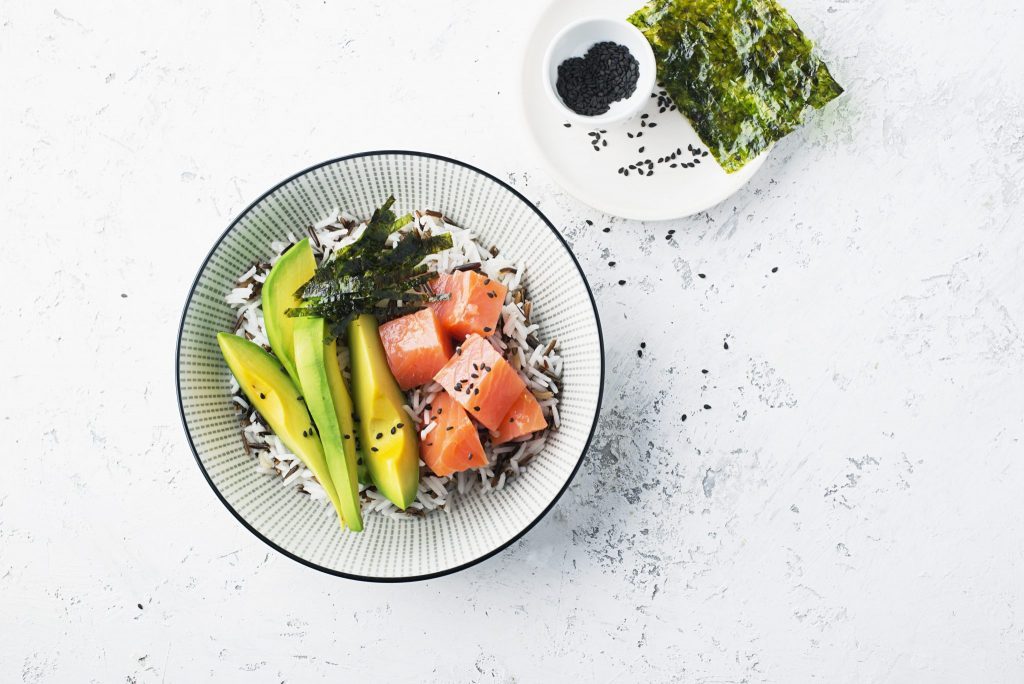
What is a Bad Fat?
The one thing that all researchers agree on: eating trans fats leads to a list of poor health outcomes including hormonal imbalances, diabetes, cancer, cardiovascular disease and even depression. Saturated fats in the form of processed foods have also been shown to increase your risk of heart attack (read more about the difference between “bad saturated fats” found in processed high-sugar foods and those found in natural sources like coconut in this fat-focused article). These are the top dietary sources of trans fats and saturated fats that should be avoided:
- Margarine
- Vegetable shortening
- Partially hydrogenated vegetable oils
- Canola oil
- Fried foods
- Processed foods: desserts, packaged baked goods, candies, pizza (sorry)
- Factory-farmed dairy products (organic cheese and milk fine for some people in moderation).
- Processed Deli meats
The Best Fats for Healthy Hormones:
- Wild Salmon: Wild caught fatty fish like salmon are one of the best ways to boost your omega-3 levels. Diets high in fish are linked with improved symptoms of PMS and PCOS via a reduction in inflammation.
- Flaxseeds: These tasty little seeds are a great source of an omega-3 fatty acid called ALA. They also contain specific antioxidant called lignans – plant polyphenols that help to modulate estrogen levels. Flax seeds support healthy estrogen production and have been shown to lower insulin and testosterone levels in women with in PCOS.
- Sesame Seeds & Tahini: There’s a study from the the Journal of Clinical Endocrinology & Metabolism which shows that eating these seed (and others included in a seed cycling protocol) results in an improve progesterone to estrogen ratio. The women who ate these seeds were also found to have longer luteal phases, which is often associated with a healthier hormonal cycle and regular ovulation.
- Fish oil Supplements: There are tons of studies on fish oil supplementation and hormonal health. Fish oil has been shown to reduces serum levels of testosterone in women with PCOS & hormonal acne, and can even help regulate menstrual cycles & reduce cramping.
- Coconut oil: Studies show that dietary coconut intake is associated with a healthier body weight. This is important to your hormone status because a lot of our body’s estrogen is made in fat tissues. The more fat you have stored on your body the more estrogen you’ll make, increasing your risk of estrogen dominance and hormone dependant cancers. In addition to providing hormone-helping fats, coconut oil can also help modulate stress hormones to keep your cycles balanced.
- Pumpkin Seeds: Pumpkin seeds are a great source of dietary fats. As a bonus they also contain a good dose of zinc which is important for hormone receptor health, and magnesium to help your body detoxify excess hormones.
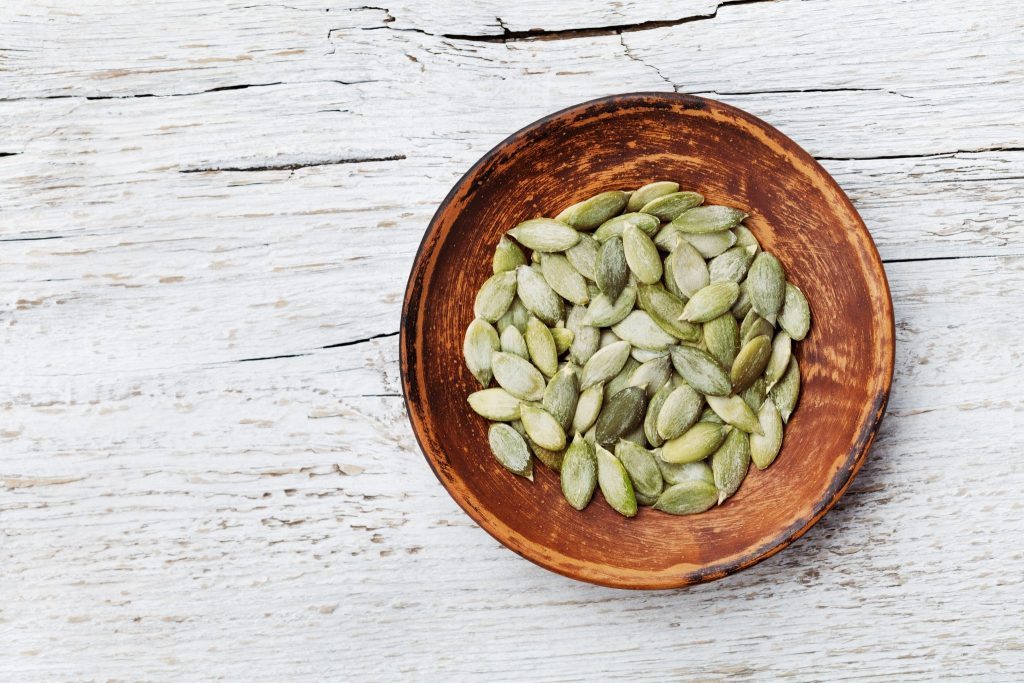
My Top High-Fat Recipes For Healthy Hormones:
Here are some of my favourite high-fat healthy recipes. I typically make 1 – 2 of these recipes weekly to make sure that my husband and I always have some quick and easy healthy fats on hand:
- Keto Chocolate Chip Peanut butter Cookies: Healthy fats from nuts and coconut oil. These treats are actually healthy enough to eat for breakfast, we do it all the time!
- Flax Seed Muffins: my favourite follicular phase healthy-fat heavy breakfast
- Lemon Tahini Balls: my go-to luteal phase snack
- Keto Frittata: This weekend breakfast staple is extra rich and creamy from the addition of some extra coconut milk.
- Chocolate mint keto fat-bombs: A great way to sneak a little extra coconut oil in your diet.
- Tahini Dip: an amazing afternoon snack with sliced up apples and cinnamon
- Flax Muesli: I love preparing a big batch of this on Sunday night to last us through the week
- Chia pudding: A low carb & easy breakfast or snack. We especially love making this cooling pudding with tropical flavours in the summer months.
- Sun-dried tomato walnut pesto: wonderful on zucchini noodles or our favourite lentil-based pasta for a special treat.
- Hormone-balancing freezer fudge: My favourite fatty dessert recipe, you can almost always find a batch of this in our freezer.
- Paleo granola: made up of fatty nuts & seeds and just a touch of maple syrup. It’s the perfect high fat breakfast with a dollop of coconut yoghurt.
- Chocolate-covered Brazil nuts: not only are Brazil nuts a great source of healthy fats they are also rich in selenium to maintain healthy thyroid function.
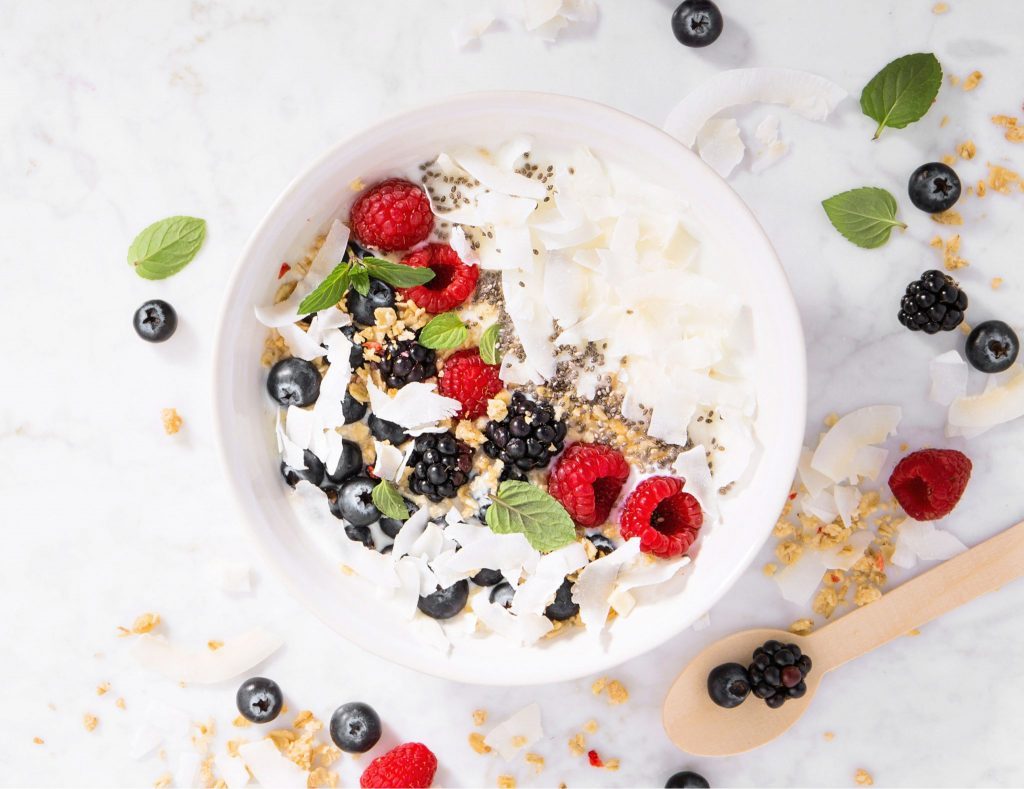
References:
- https://www.ncbi.nlm.nih.gov/pubmed/3014093
- https://www.ncbi.nlm.nih.gov/pmc/articles/PMC4247320/
- https://www.ncbi.nlm.nih.gov/pmc/articles/PMC2752973/
- https://www.ncbi.nlm.nih.gov/pmc/articles/PMC3941370/
- https://www.ncbi.nlm.nih.gov/pmc/articles/PMC5461594/
- https://www.ncbi.nlm.nih.gov/pubmed/22010771
- https://europepmc.org/abstract/med/18296341
If you have more questions, or if you live in Oakville and are interested in your own holistic hormone health protocol you can book your first in-person visit here or visit my website for more information.
If you’d like to work together and you’re not a resident of Ontario*, or you’d prefer an online consultation you can book online with Dr. Sarah here.
*Note: online services provided by Dr. Sarah to those of you living outside of Ontario are delivered as a Certified Functional Medicine practitioner consult and not as an Naturopathic doctor appointment & as such they will not be eligible for reimbursement through private insurance.
This information is not intended as a substitute for the advice provided by your Naturopathic doctor or primary care physician. Do not use the information in this document for diagnosing or treating a health problem or disease. Always speak with your Naturopathic doctor before taking any medication or nutritional or herbal or using any treatment for a health problem. If you have or suspect that you have a medical problem, contact your health care provider promptly. Do not disregard professional medical advice or delay in seeking professional advice because of something you have read online.
COMMENTS
Leave a Reply
This site uses Akismet to reduce spam. Learn how your comment data is processed.
Mauren Meneses says
MAY 13, 2021 AT 8:15 AM
Hormonal issues and nutritional help
Reply